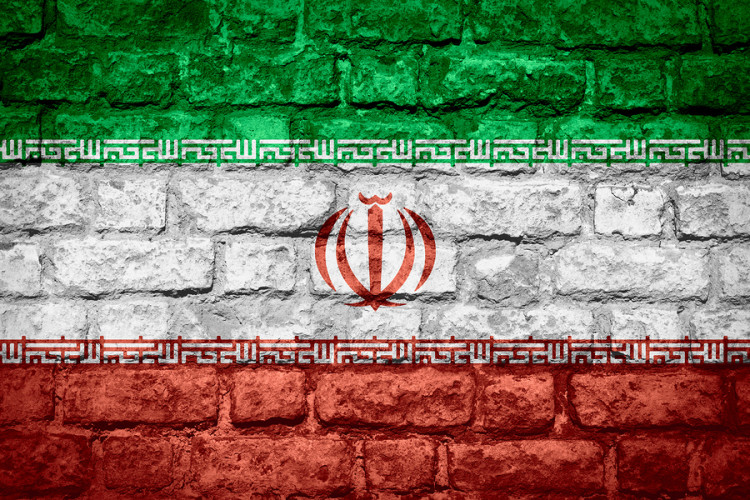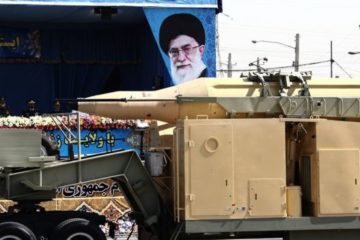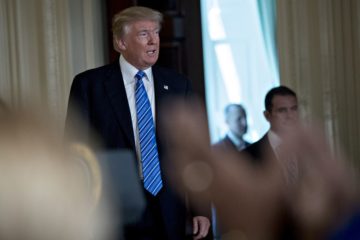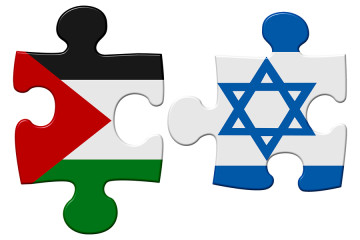A Rearguard Action by Saudi Arabia to Stop Iran’s Economic Rise

QuickTake Iran’s Nuclear Program
The kingdom is mobilizing its Gulf allies to make sure that, more than four months after the lifting of sanctions on the Islamic Republic, Iran’s opening-up to the global economy doesn’t go smoothly. Last month the Saudis scuttled a bid to stabilize crude prices because it would have allowed their bitter foe to grab a larger share of oil markets. And in Dubai, once their main gateway to the world, Iranian businessmen privately complain of increasing restrictions.
It’s a rearguard action by the Saudis as the U.S. reassesses its role in the Middle East and investors are drawn to the allure of Iran as the world’s last untapped major frontier market. Still, there are other drags on doing business with Iran that play into the Saudi effort: European banks are still reluctant to do business in the Islamic Republic for fear of possible U.S. sanctions.
“The contest over Iran’s status in the region — whether it is to be isolated or accepted as a normal regional player — is likely to continue over the next few years,” said Paul Pillar, a professor at Georgetown University. “The Saudis, in the pro-isolation camp, may not win this contest. But they have allies in the person of hardliners in the U.S. who opposed the nuclear agreement.”
Proxy Wars
The Saudis and Iranians, leaders of the Sunni and Shiite Muslim camps in the Middle East, are already clashing via proxies on the battlefields of Syria and Yemen. Their long-troubled relationship got worse when Saudi Arabia executed a top Saudi Shiite cleric in January, and an Iranian mob responded by attacking the kingdom’s embassy in Tehran, leading the Saudis to cut all diplomatic ties.
“[The Saudis] are applying pressure on Iran wherever they are able to do so” —Shashank Joshi
Since the easing of sanctions early this year, a key Saudi concern has been that Iran will use the proceeds of a potential wave of investment to step up engagement in regional conflicts. That’s one reason the Saudis are doing their bit to ensure the investment never arrives.
“What has concerned people is some of the rhetoric that has been used by the Saudis around cutting trade with Iran, and what sort of formal and informal mechanisms and obstacles they can use to put pressure on businesses not to go into Iran,” said Henry Smith, a director at Global Risk Analysis in Dubai.
Trade Ties
Dubai is a city that’s always had close ties to Iran, but these days business licences for Iranian nationals aren’t being renewed easily. It’s also difficult for citizens to get residency, and bank accounts are coming under increased scrutiny, according to Iranian businessmen.
Officials contacted by Bloomberg in Saudi Arabia and the United Arab Emirates didn’t immediately comment.
Times Aerospace, a U.K.-based company that organizes events in Dubai, cancelled its Aviation Iran gathering this year because of political tension. “There are a lot of sensitivities at the moment with Iran in the Gulf,” Mark Brown, director of the group, said in an interview. “We recognize that it’s inappropriate at this moment to hold an Iran-related event.”
Saudi Arabia is also using oil as a weapon against Iran. Ahead of a meeting in Doha last month, where producers were planning to freeze production, Deputy Crown Prince Mohammed bin Salman said in two interviews with Bloomberg that the Saudis would only go along with the plan if Iran agreed to participate. That effectively torpedoed the deal, since Iran has ruled out curbs on pumping because it’s trying to recover markets lost during the sanctions years.
‘No hesitation’
“Oil policy was one of the instruments,” said Mustafa Alani, head of defense and security department at the Gulf Research Center. “The other thing is to counter Iranian investment in the region. Under King Salman it has become a clear-cut policy. There is no hesitation.”
Also last month, Saudi Arabia banned Iran’s Mahan Airline from flying through Saudi airspace. Shipping insurers and brokers have been advising clients since February that ships carrying Iranian crude will not be permitted to enter Saudi or Bahraini waters, according to an April report by Control Risks. It said ships that have been to Iran as one of their last three points of entry must also receive special approval.
Saudi rulers are complementing those efforts with attempts to deepen Iran’s political isolation in the Middle East.
U.S. Ties
Last month, Jordan recalled its ambassador to Iran shortly after a visit by the Saudi deputy crown prince. Ten days later, it signed an accord that could pave the way for multi-billion-dollar Saudi investments. In February, the kingdom scrapped a $3 billion deal to supply much-needed weapons to the Lebanese military, citing the rising influence of Hezbollah, a militant group backed by Tehran.
The Saudi moves take place against the backdrop of cooler ties with the U.S., in part because of the Iranian nuclear deal. In interviews published by The Atlantic magazine, President Barack Obama said the Saudis must “share” their region with Iran, and was reported describing the U.S. relationship with the kingdom as “complicated.”
The Saudi push is a “patchwork campaign,” Shashank Joshi, a senior research fellow at the Royal United Services Institute in London, said by phone. The Saudis can’t do much to block Iran at the global level, he said, but they’re “applying pressure on Iran wherever they are able to do so, to limit its political and economic influence.”
But one hurdle for the Saudis is that the other Gulf Cooperation Council states, key to the effort, may not be totally on board.
Bahrain was the only other country in the six-member GCC to follow the Saudis in cutting diplomatic ties this year. Kuwait recalled its ambassador to Tehran in January ans the United Arab Emirates reduced its diplomatic representation to the level of charge d’affaires.
The U.A.E has more at stake than the kingdom: Iran was its third largest trading partner in 2015, after India and China.
“We still see pretty substantial disagreements within the GCC,” Joshi said. “Iran is already integrated into the Gulf economic systems, and I don’t think anything Saudi Arabia can do can seriously disentangle that.”







No Comment